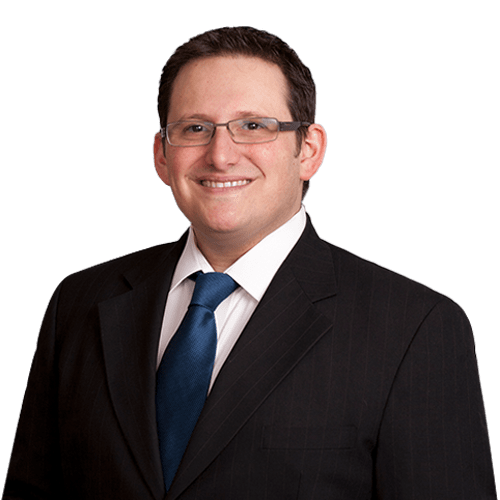The New Roadmap for Proceedings Supplementary in Florida

Proceedings Supplementary are statutory procedures unique to Florida that allow a judgment creditor to pursue the property of a judgment debtor in the possession, custody, and/or control of third-parties in the same case from which the underlying judgment arose. Florida’s Proceedings Supplementary law, section 56.29, Florida Statutes, was amended, effective July 1, 2016, to clarify the procedures for these post-judgment proceedings. The following outlines step-by-step the process for Proceedings Supplementary pursuant to the amended law:
Step 1: Confirm the Judgment Creditor holds an Unsatisfied Judgment and/or Judgment Lien Enforceable in Florida.
Proceedings Supplementary are available to any holder of an unsatisfied Florida judgment and/or a judgment lien on Florida property. Judgment creditors holding a foreign judgment (a judgment entered by a sister-state or a foreign country) must properly domesticate, register and/or convert the foreign judgment into a Florida judgment before they can pursue enforcement via Proceedings Supplementary.
Step 2: Cause the Clerk of Court to Issue a Writ of Execution on the Judgment.
Pursuant to Florida Rule of Civil Procedure 1.550, the clerk of court in the circuit from which the underlying judgment was issued must issue a writ of execution on request from the judgment creditor or judgment creditor’s counsel, during the life of the judgment, after the judgment has been recorded with the clerk of court and the time for serving a motion for new trial or rehearing has passed, and in cases where either (i) no motion for new trial or rehearing was timely served, or (ii) the motion for new trial or rehearing was considered and denied (provided there was no stay of execution). An original Florida judgment is valid and enforceable for 20 years. Different time constraints may apply to foreign judgments recognized in Florida depending on the recognition procedures used.
Step 3: File a Motion and Affidavit to Initiate Proceedings Supplementary.
To initiate Proceedings Supplementary, the judgment creditor must file with the court, in the case from which the judgment arose or was registered/domesticated, (i) a motion and (ii) an affidavit containing: (a) the name of the judgment creditor, (b) a statement that the judgment creditor is the holder of the judgment and/or judgment lien, which remains unsatisfied, (c) the name of the court that issued the judgment, the case number, and the unsatisfied amount of the judgment and/or judgment lien, including accrued costs and interest, and (d) a statement that execution on the judgment is valid and outstanding.[1]
The motion must also (a) describe the non-exempt property of the judgment debtor and/or the debt or other obligation owed to the judgment debtor that the judgment creditor seeks to execute on and apply toward the satisfaction of the judgment and (b) identify the person in possession, custody or control of the judgment debtor’s property, or the person owes the judgment debtor the obligation.
Step 4: The Court Shall Issue a Notice to Appear.
On filing the motion and affidavit, the judgment creditor is entitled to Proceedings Supplementary as a matter of law. The judgment creditor may seek to implead the third-parties referenced in the motion, and the court shall issue a “notice to appear” directing the third-parties identified in the motion to prepare and file an affidavit with the court, by a date certain (not less than seven business days from date of service of the notice to appear), in the manner set forth in section 56.16, Florida Statutes, explaining why the property, debt, or other obligation described in the motion and affidavit should not be applied to satisfy the judgment. The court may shorten the time for serving and filing the affidavit for good cause. The third-parties must include in their affidavit all factual defenses. Legal defenses need not be included in the affidavit, but must be served/filed contemporaneously with the affidavit.
The notice to appear must specifically identify the property, debt, and/or other obligation the judgment creditor seeks to have applied toward the judgment, shall allow the third-party to present defenses, and shall notify the third-party of their right to seek discovery and their right to trial by jury, pursuant to section 56.18, Florida Statutes.
The notice to appear must be served on the third-party in accordance with chapter 48, Florida Statutes.
Step 5: Right to Examine the Judgment Debtor in Proceedings Supplementary.
After Proceedings Supplementary have been initiated, either before or after the issuance of a notice to appear, the judgment creditor may engage in discovery in aid of execution under Florida Rule of Civil Procedure 1.560 and/or seek leave to examine the judgment debtor before the court, a general magistrate, or a special magistrate. On filing a motion for leave to examine the judgment debtor, the court must enter an order directing the judgment debtor to appear at a time and place set by the court to be examined concerning its property. The examination shall take place in the county of the judgment debtor’s residence or principal place of business.
The court order directing the examination of the judgment debtor shall be served on the judgment debtor in a reasonable time before the examination date, pursuant to the rules of procedure.
The examination shall be under oath, comprehensive, and cover all matters relating to the judgment debtor’s business and financial interests that may reveal the location of the judgment debtor’s property. A corporate judgment debtor must appoint a designee to attend the examination or must present any officer or manager identified in the court’s order.
Step 6: Proceedings Supplementary Complaint.
In Proceedings Supplementary, the court may consider claims relating to the judgment debtor’s personal property pursuant to chapter 726 and enter orders or judgments against transferees, whether or not they are still in possession of the judgment debtor’s property. The judgment creditor is required to assert such claims in a supplemental complaint, to be served on the third-parties as provided in the Florida Rules of Civil Procedure.
The clerk will docket the supplemental proceeding under the same case number assigned to the original action from which the judgment arose (or the case number assigned to a judgment domesticated in Florida) and shall also assign a separate supplemental proceeding number.
Step 7: If the Third-Party in Possession of the Judgment Debtor’s Property Does Not Contest Ownership and/or After a Final Hearing on Judgment Creditor’s Proceedings Supplementary Motion or Complaint, the Court May Order Property of the Judgment Debtor be Levied Upon, Sold, and Applied Toward the Judgment’s Satisfaction.
In Proceedings Supplementary, after satisfying due process by service and an appropriate hearing, the court may order any property of the judgment debtor, not exempt from execution, or any property, debt, or other obligation due to the judgment debtor, in the hands of or under the control of any person subject to the notice to appear, to be levied upon and applied toward the satisfaction of the judgment debt.
Our firm has extensive experience with commercial post-judgment enforcement and collection proceedings. Our firm has extensive experience with commercial post-judgment enforcement and collection proceedings. Shareholder Donald Kirk co-chaired the task force that drafted this legislation. If you have a commercial money judgment and are interested in a consultation concerning remedies available to you, please contact our Bankruptcy and Creditors' Rights attorneys.
[1] The reason for completing Step 2.



